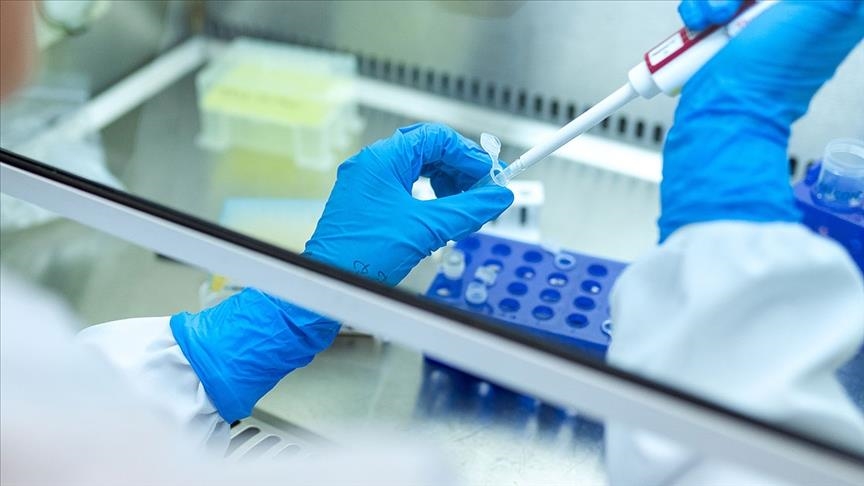Turkey poised to be global pharma with its competitive location, export network
Turkish pharmaceutical industry exports to nearly 180 destinations, says top official of pharmaceutical manufacturers body

ANKARA
Turkey is eager to be a global pharmaceutical hub thanks to its strong export network, geographical location, demographics and production plants, according to the secretary general of the Pharmaceutical Manufacturers Association of Turkey (IEIS).
"With its 100 pharmaceutical and 11 raw material production plants, 680 companies, 33 R&D centers and 40,000 employees, our industry generates more than 12,000 products," Savas Malkoc told Anadolu Agency ahead of the World Pharmacists Day on Sept. 25.
Noting that the Turkish pharmaceutical industry has a long-standing culture of production and a strong infrastructure, Malkoc highlighted that the industry complies with today’s international standards in terms of its production technologies, capacity and qualified human resources.
"Some 88% of the products consumed in Turkey (on volume basis), are locally produced," Malkoc noted.
Turkey is an attractive market for the pharma industry with its demographics and improving quality in healthcare services beside being a geographical hub connecting some of the world’s most dynamic pharma markets, he said, and added: "According to 2020 data, the Turkish pharmaceutical market was the eighteenth largest in the world."
Turkish pharmaceutical industry exports to nearly 180 destinations including the European Union, Commonwealth of Independent States, North Africa, East Asia and the Middle East, he underlined.
The industry's exports jumped 27.3%, hitting an all-time high of $1.8 billion in 2020, Malkoc said.
The market has reached to 47.9 billion Turkish liras ($6.7 billion) in 2020, growing 17.7% on a value basis, he said, adding that on a unit basis, the market narrowed by 7% to 2.2 billion.
- Strong, self-reliant industry
Underlining that the COVID-19 has shown the crucial importance of a pharmaceutical industry for countries, Malkoc said Turkey has experienced the privilege of having a strong and self-reliant pharmaceutical industry during this period.
"The Turkish pharmaceutical industry has pursued its activities in its production facilities without interruption, despite difficulties ranging from the supply of raw material, logistics disruptions, increasing costs, fluctuations in pharmaceutical sales, and the challenging circumstances created by the risk of contagion," he said.
"By this means, our country’s supply safety was maintained, and neither our healthcare professionals nor the general public faced any issues in accessing pharmaceuticals,” he added.
Turkey has also started producing drugs used in the treatment of COVID-19 that are not used to be manufactured in the country, he said.
Touting the drug manufacturing activities in Turkey, Malkoc explained that generic drugs constitute the main activity area of the industry beside the licensed products and contract manufacturing of reference drugs.
"The innovative studies of the generic drug firms generate huge opportunities in Turkey and worldwide," he noted, while underlying the importance of focusing on incremental and stepwise innovation for the country.
In recent years, Turkish companies have developed innovative products such as different doses of an existing product, controlled release systems, combination products and packaging systems that ease patient compliance, Malkoc said.
Pharmaceutical R&D expenditure has reached 423.8 million liras ($88.3 million), increasing by 80.9% in the last five years, he said.
- Need of supportive ecosystem
Biotechnological products have been gradually strengthening their role in the world pharmaceutical market for the treatment of a number of diseases, Malkoc said, adding their share in the world market has hit 30%.
"There is a similar situation in our country. The share of the Turkish biotechnological pharmaceutical market reached 25% in 2020," he said, adding their production is mandatory for the industry.
However, he cited that Turkey was largely dependent on foreign sources in this product group with imports worth of nearly $1.6 billion per year.
"Establishing an ecosystem and cooperation environment that will enable the further development, production and export of these products in Turkey is crucial to facilitate patients' access to these drugs, to alleviate the burden on the health system, to make our strong national pharmaceutical industry one of the world leading players, and to make a significant contribution to the country's economy by reducing the foreign trade deficit," Malkoc underlined.
Turkish companies also take steps to produce biosimilar products in recent years to enter the global market with a long-term perspective.
"The pipeline of companies active in biotech suggest that 39 products will be marketed by 2024," he said.
Malkoc pointed to the need of "a supportive ecosystem" for Turkey to compete effectively with its competitors
"Enhanced licensing regulation that will shorten time-to-market is of utmost importance. New incentive schemes geared towards more public funding would greatly assist," he explained.
If the R&D field is supported by the correct strategic planning, Turkey will not only be able to produce value-added generic products and biosimilars but will also be in a position to export them, he suggested.
Noting that Turkey is an attractive market with its improving health services and easy access to medicines, Malkoc said the sector needs consistent, sustainable and balanced policies to ensure that it renders its high potential more efficient.


